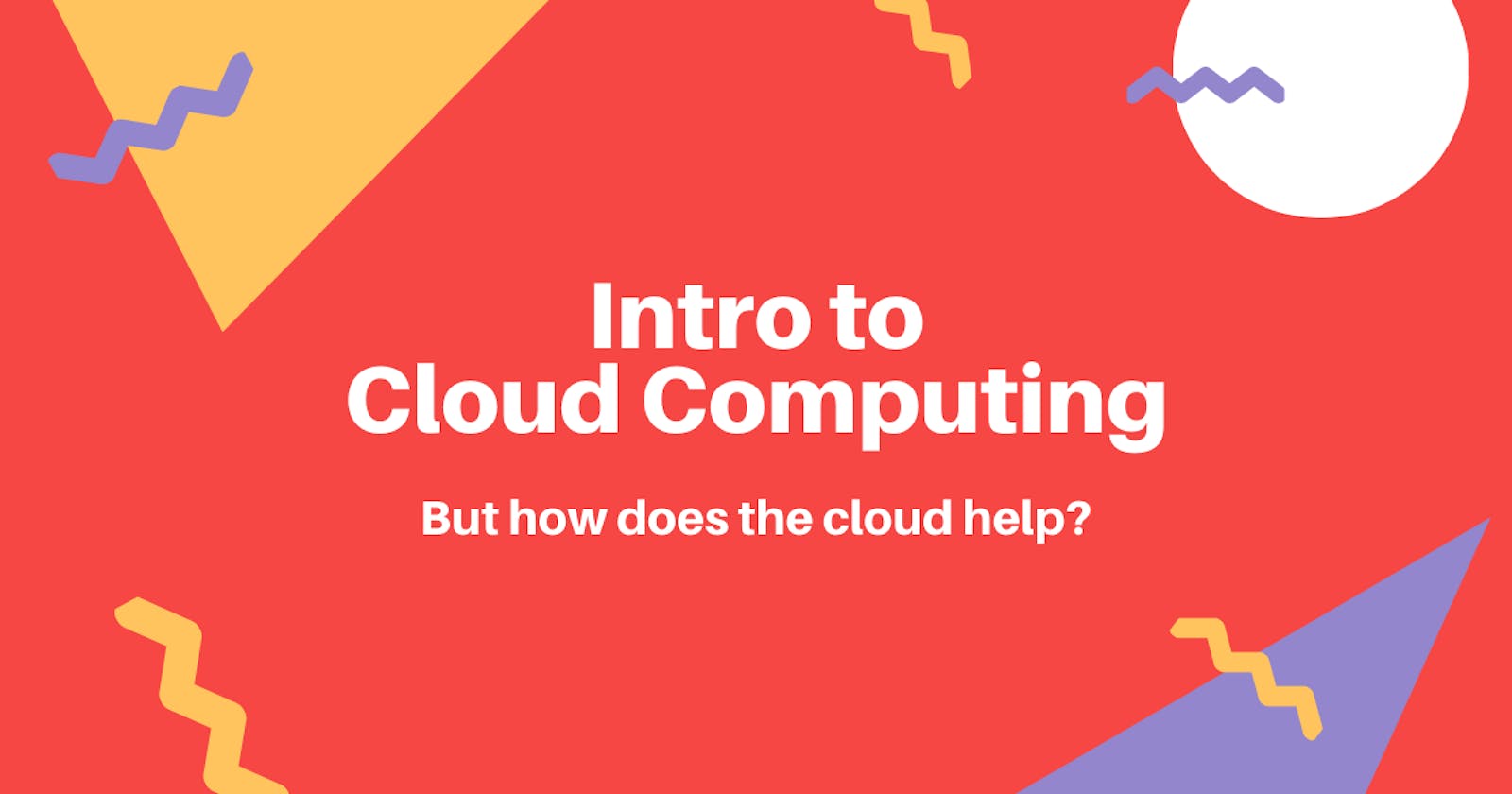Now that we know why the cloud exists and how the internet functions from a good-enough perspective, let us actually get our hands dirty and know why exactly is cloud such a great idea. But before that, if you haven't read the first part of the series and are wondering what on earth I am talking about, read the previous post linked below, and come back here. I'll be waiting, I promise.
You're done? Alright let's go.
Why is the cloud so important for an enterprise?
Great question, in fact. If a company decides to buy and build and maintain its set of computers for all that it does, why should it think about making a switch to the cloud? Well, for starters, it is about diversity. Cloud service providers not only provide solutions for website hosting or content delivery, but numerous others including databases, management, artificial intelligence, authentication, payment and even some niche offerings such as quantum computing.

These services, are not only difficult to build for a standalone enterprise, but can also require an insane amount of developers, scientists and researchers to optimise for ideal use case scenarios. With cloud platforms, these services are available pre-configured exactly as much and how you want to use it, and thus, creating solutions on the cloud can be a great way to save essential time and capital, specially for startups.
Let me explain this in depth using two examples :
Example One : The Candle Shop
Let's assume you own a small candle shop in a locality away from the noise of the city. Your business is running good, and you feel this would be a great opportunity to take your business online and attract more buyers from the nearby towns. There are no major IT infrastructure shops nearby, so you feel it would be a great idea to utilise cloud services to handle the dirty work for your website, so you, as a shop owner only need to care about the product page of the website.

Say your website requires receives more resources to handle customers in October because the demand for candles increases manifold, all you need to do is increase the allocated resources with the click of a button, and unallocate them when you no longer need them. This gives you the flexibility to control exactly how much resource you need, with you having to pay exactly as much as you use.
Example Two : PetFlix
You and your college friends started a video sharing platform called PetFlix, where everyone shares videos of their pets. Your idea seems to have gained a lot of traction, and since you think this is an awesome product that the entire world should see, you plan to go global.

Cloud services have global availability zones, so your content can be present on multiple locations across the world, with each zone fine tuned according to the number of active users. This ensures low latency for everyone who uses PetFlix, and thus makes the platform feel snappier while streaming and uploading pet videos. Each of these data centers have backups, so even if a system goes down for a while, the backups would automatically be activated and your users would experience extremly low down time as compared to self-hosted servers.
Conclusion
Cloud computing is definitely one of the most sought after skills in the IT domain, and with increasing competition and service announcements from companies offering them, adoption would be on a rise each subsequent year. More and more enterprises are recognising the need to move away from on-premise infrastructure, and only efficiently trained individuals can help them achieve this goal.
This series was meant to be a short introduction to why and how cloud computing works, and should definitely not be the last thing you read before that Google interview. You would find great content around here and on the internet if you want to learn more. Do check out these amazing tags to learn more about some of the top service providers : #cloud, #aws, #gcp, and #azure.
That's all from this short series on computing on the cloud. I'll see you in the next one. So until then, stay safe. Peace.
